Welcome to Night Vale: More Conservative Than It Seems
The horror podcast Welcome to Night Vale has exploded in popularity since its initial release in 2012. This series, which blends Lovecraftian cosmic horror and comedy, takes the form of radio broadcasts delivered to the fictional town of Night Vale.
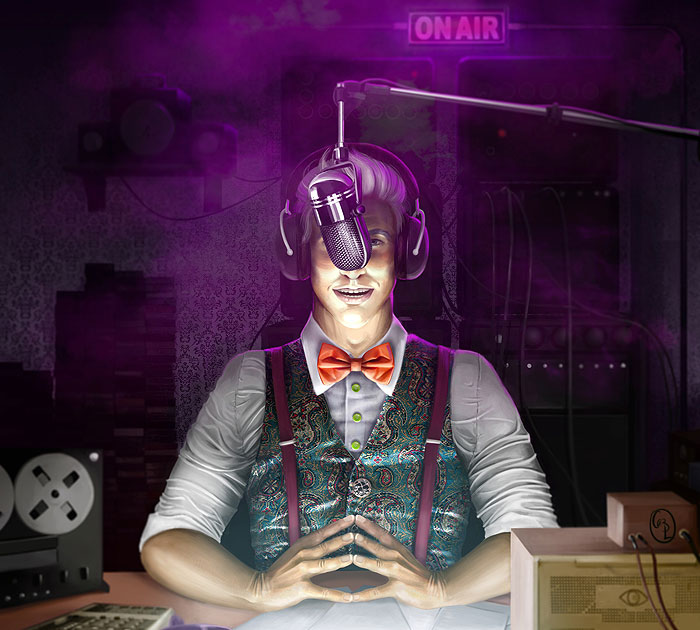
Like all cosmic horror, Welcome to Night Vale depicts a frightening and meaningless universe and dwells at great length on humanity’s own insignificance. Somewhat unusually, however, the culture and people depicted in Welcome to Night Vale are unabashedly progressive. Indeed, the series lends support–whether underhanded or more obvious–to virtually every cause popular with modern progressives at least once. The problem is, under Night Vale’s corrupting influence these same causes end up looking so unappealing as to confirm, quite by accident, the views of their conservative critics.
Conservatism and Progressivism, Defined

Merriam-Webster defines “conservatism” as “a political philosophy based on tradition and social stability, stressing established institutions, and preferring gradual development to abrupt change 1.” In this context, the opposite of conservatism is progressivism. Merriam-Webster defines one who is progressive as “making use of or interested in new ideas, findings, or opportunities 2.” As such, political and social progressives do not hold established institutions, traditions, or rituals as sacrosanct, and will subvert or challenge them if they think something better can be put in their place. Individual members of conservative and progressive political movements often debate and squabble over who constitutes a “true conservative” or a “true progressive,” but these basic definitions apply to all members of their respective movements to varying degrees. Conservatives and progressives often accuse each other of hating certain individuals or groups for their native cultures or unalterable characteristics when what really divides them is their political beliefs.
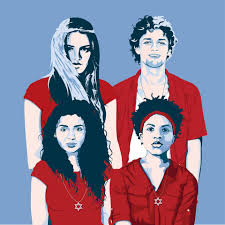
Welcome to Night Vale may be the most openly progressive work of cosmic horror to date, and certainly the most progressive to achieve widespread popularity. The problem lies in its attempt to juxtapose the perfectly progressive lifestyle in Night Vale with the horrible things that happen there on any given day. Classic cosmic horror masters like HP Lovecraft and Caitlin Kiernan are able to maintain a consistent tone of despair and dread by approaching a new era that rejects conventional mores with trepidation, fear, and cynicism.
Many of Night Vale’s problems, by contrast, come about because of, rather than despite, its citizens’ and spokesperson’s cheerful rejection of traditional values. The podcast’s descriptions of Night Vale’s life and culture make it seem like the absolute least enjoyable place to live imaginable, and it would likely remain as such even without the constant threats from otherworldly monsters and forces.
(Lack of) Family Values

Conservatives, particularly in the West, consider traditional nuclear families–consisting of a married mother and father, and their (usually biological) children–to be the building blocks of society. The Catholic writer Mary Eberstadt explains:
Up until the middle of the twentieth century […] human expectations remained largely the same throughout the ages: that one would grow up to have children and a family; that parents and siblings and extended family would remain one’s primal community; that […] one would have parents and siblings and extended family in the first place; and that, conversely, it was a tragedy not to be part of a family. 3
On the flip side, conservatives argue, most social problems ultimately stem from a breakdown in traditional family dynamics 4. Indeed, much of the conservative antipathy to birth control and abortion stems from a fear that, in framing establishing a family as a “choice,” they make it less appealing 5. By this logic, if people are given permission to opt out of the sacrifices inherent in family life, many will choose not to make them.
In Night Vale, by contrast, the traditional nuclear family is viewed as just one lifestyle option among many, no better or more valuable than any other. Indeed, the concept of such a family is so uncomfortable to many of Night Vale’s residents that the episode Lost in the Mail depicts such a family as having literally come from the 1950’s. On the surface this may seem like a positive, as it allows sexual minorities (including Cecil, the radio host) the maximum freedom to pursue relationships on their own terms. However, this freedom comes at a cost, and in Night Vale the costs are never far away.

Since Night Vale’s culture places no value on marrying or raising children, residents often don’t bother to do either. In the Night Vale novel It Devours!, after the heroine Nilanjana breaks up with her boyfriend she reflects on her desire to find someone to “raise dogs or children” with 6–as if children and dogs were interchangeable. Few named Night Vale residents have more than one sibling, and many have none at all. Night Vale is, by all appearances, what one journalist called a “theme park of childless affluence 7,” with a demographic profile reminiscent of New York City or Washington, DC but only one public school for every grade level and one charter school. By contrast, the small town of Elkins, West Virginia–which only has about 7,000 people 8–has four elementary schools 9.
The families that do form are also fairly fragile. In Casette, Cecil admits that he was raised mostly by his sister, Abby, after their mother abandoned them. As an adult, Abby has apparently been married twice, since her current husband, Steve Carlsburg, is described as the stepfather of Abby’s daughter Janice. Janice’s biological father is never mentioned at all. Presumably, the creators of Welcome to Night Vale wanted to challenge the stereotype of abusive stepparents. Although Steve is genuinely protective and nurturing to Janice, the overall statistics on stepparents are grim 10. In It Devours! Cecil displays a concern for Janice’s well-being that borders on the obsessive, which makes sense in light of the fact that she is, at the time, his only tie to the next generation.

Although the series generally tries to minimize the strain associated with broken family life, some episodes illustrate it clearly. The episode Lost in the Mail tells the story of a young woman named Basimah, whose father, Fakir, left her when she was six years old to fight in the Blood Space War. Throughout the episode Basimah expresses her frustration and disappointment at her inability to see her father, as well as the fact that his letters to her are all directed at the young child she used to be and not the woman she presently is. Perhaps the episode was meant to have an anti-war message, but in the grand scheme of things, it doesn’t really matter whether Basimah’s father left her to fight in a war or for some other reason. Ultimately, Basimah needs her father, and nothing can really replace him or make up for his absence. She claims that any sort of “family” is good enough as long as the members all feel loved, but it’s clear that she doesn’t really feel that way.
Adult-Like Children, Child-Like Adults
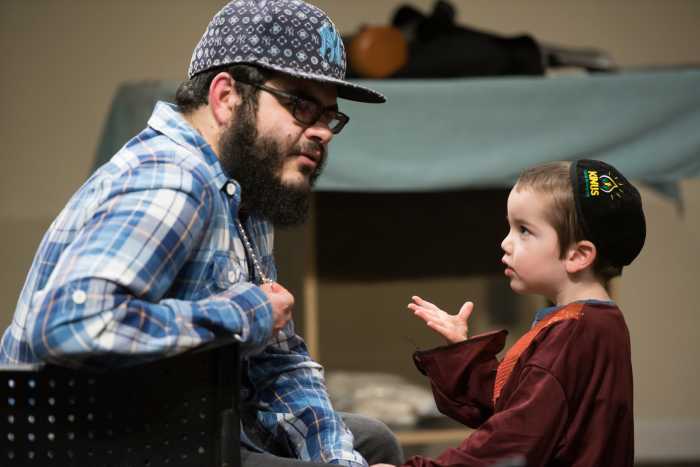
Conservatives and progressives disagree on the ideal relationship between children and adults. Conservatives generally believe in the responsibility and authority of parents and other adults to impart their knowledge to inexperienced children. The writer Suzanne Venker says:
Unfortunately, the tough love approach parents used to take has been replaced by the feel-good approach begun by Baby Boomers. It was this generation that began an era of parenting in which Mom and Dad became their children’s friends. 11
Venker further goes on to speculate that this shift in priorities came about partly as a result of parents–and particularly mothers–spending more time out of the home to focus on their careers.
By contrast, progressives are more likely to see children as independent, autonomous entities, whom adults need only mentor. Progressives are far less likely than conservatives to respect authority just because the authority figures in question are adults. One progressive man from the UK goes so far as to say:
I’m from the school of thought that believes “because I’m the adult and I say so” is never a sufficient reason to ask for a child’s compliance. If you can’t give them an actual reason beyond just exercising your authority, then maybe the command shouldn’t be obeyed. 12
The danger with progressive attempts to paint children as hyper-competent lies in the role confusion that inevitably results between children and the adults who are supposed to be their coaches and guides as they mature. Kay Hymowitz, a fellow at the right-leaning Manhattan Institute, writes in her 1999 book Ready Or Not that
In the movies, in magazines, and most of all on television, children see image upon irresistible image of themselves as competent sophisticates wise to the ways of the world. And maybe that’s a good thing too, since their parents and teachers appear as weaklings, narcissists, and dolts. 13
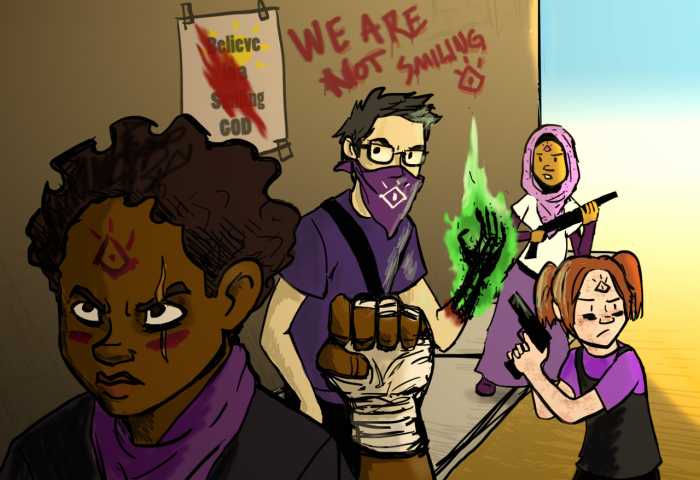
One of the striking things about the few children who live in Night Vale is how little they act like real children. More often than not, they behave like miniature adults and are treated accordingly in Night Vale’s society. For instance, children young enough to be in elementary school are routinely given military-grade weaponry like nerve gas and guns. In the episode The Registry of Middle School Crushes, Janice, who is then eleven years old, masterminds a plot worthy of a James Bond villain to retrieve the aforementioned document from the Hall of Public Records all by herself. She even invents her very own stealth wheelchair (she has severe spina bifida) for just such an occasion.
Still, Tamika Flynn may be the most blatant example of a young person who acts like a fully-grown adult. She first appears in the episode Summer Reading Program, when she and a number of other children are kidnapped and forced to participate in the library’s summer reading program. Even though she’s only twelve at the time–and the other children range between five and seventeen–they surpass all expectations when they emerge from the library after a vicious battle against the man-eating librarians. By the time she’s thirteen, she has formed a militia of child soldiers that conduct guerrilla operations against the evil company StrexCorp and study books far beyond their usual reading level.
In other words, Tamika’s lifestyle bears not the faintest resemblance to that of a real American teenager. Nevertheless, she and her colleagues may not be as sophisticated as first thought. They use books as props and weapons as often as reading material. In Old Oak Doors Part A, when Tamika confronts Lauren Mallard, the Vice President of StrexCorp, she not only analyzes the latter’s employee handbook as if it were a work of literary fiction, but she also claims that although it belongs to her worst enemy she loves it just because it’s a book.
It looks ill-written, ill-conceived, full of bad ideas expressed badly…I bet it lacks narrative arcs and an appreciation for the flow of language. It looks like the worst book in the history of books! But here’s the thing…it’s still a book. And I love books. So, you do not deserve to even hold it. 14
All in all, Tamika seems more attached to the idea of books than the books themselves.
If Night Vale’s children act like tiny adults, Night Vale’s adults act like overgrown children. Cecil, the central character, is a prime example: his personality shifts between naivete, self-absorption, petulance, and hyperactivity. His husband Carlos the Scientist is supposed to keep him grounded, but even he indulges in bouts of childishness, as when he stubbornly refuses to stop angsting or turn off his earthquake machine at the end of It Devours! He only comes to his senses in response to a visit from Larry Leroy, who recently returned from an adventure in the Desert Otherworld. In an earlier scene of It Devours! Nilanjana’s boyfriend, Darryl, goes to visit her apartment. When she offers him a choice between water and orange juice, he asks to have them both in the same cup. He explains that “If you combine them, you get orangey water. It’s fun 15“–an insight that makes him sound more like a preschooler than a grown man.
The aforementioned lack of family values in Night Vale likely contributes to the role confusion experienced by residents both young and old. In real life, one commentator in a conservative magazine notes, over-involved “helicopter parenting,” which leads to overly anxious and dependent children, and childhood neglect often go hand in hand:
We over-parent our children in scheduling and chauffeuring because we under-parent our children in sitting and talking. They’re still present in the house at 30 because they weren’t fully in our presence at 10. We shuttle them between professional appointments—the therapist, the tutor, the coach—because we understand that these hired hands are doing work that needs to be done, and used to be done by family and community, and isn’t anymore. 16

In other words, the population of Night Vale comprises immature, irresponsible, emotionally-stunted adults, and children who receive little to no guidance from them and so have to make things up as they go along. Ironically, these same young people who seem so competent and precocious now will likely be just as emotionally-stunted and irresponsible in adulthood as their parents were before them.
The Antisocial Society

As it turns out, the citizens of Night Vale don’t just lack responsibility toward their own families. Many of them reject any sort of civic engagement or responsibility whatsoever. Night Vale’s residents, including Cecil, persistently fail to do even the bare minimum necessary to be good citizens.
The most obvious example of this is Night Vale’s permissive attitude toward violent crime and other types of bodily harm, even when young people are involved. In the episode Station Management, Cecil calls attention to a Mysterious Hooded Figure “that will occasionally openly steal babies (and for a reason no one can understand, we all stand by and let him do it) 17.” Cecil’s interns at the radio station die so frequently that “Intern Death Toll” has its own page on the Welcome to Night Vale wiki 18. In The Sandstorm Part A, Cecil and the rest of the characters who encounter their doubles automatically assume that they’re dangerous and must be killed. Meanwhile, the pizza shop owner Big Rico is so determined to have the only pizza parlor in town that he burns down rival pizza parlors and assassinates their owners. Yet, It Devours! frames him as a lovable eccentric. Indeed, only in Episode 28 does city government get around to making murder illegal!

This lack of social cohesion shows up in more minor ways as well. For instance, Cecil sees nothing wrong with publicly humiliating Steve Carlsburg by calling him out on the airwaves, often for reasons that make so little sense they might as well be no reason at all. Cecil also thinks nothing of publicly broadcasting his obsession with Carlos the scientist, and stalks Carlos until the latter agrees to go out with him. In the wider community, customers at Night Vale’s coffee shops are habitually nasty to the baristas, as It Devours! explains:
It was because of the general politeness and the talent of the baristas that customers were so hard on them. With so many coffee shops, it was a consumers’ market. Plus, it is basic human nature to treat polite people worse than rude people. It is easier to assert dominance over a person unlikely to fight back with much force. Rude people tend to fight hard, and it’s not worth stirring them up. 19
One can speculate that the culture of Night Vale is a good deal more cruel and dangerous than even the official canon illustrates. In It Devours! Nilanjana and Darryl have to go through a ridiculously lengthy government screening and obtain official permission in order to have sex. In all likelihood, without such a procedure in place, Night Vale would see a lot more rape.
History? What History?

Another consequence of Night Vale’s civic disengagement is rampant cultural and historical illiteracy. Many residents of Night Vale lack knowledge of even the most basic facts about important historical figures and cultural touchstones. For instance, Larry Leroy thinks that WEB DuBois was a vigilante who rode a five-headed dragon named Rachel McDaniels and defeated the Germans in 1915.
In fact, if the episode History Week is any guide, the only history that Night Vale’s residents care about is the atrocities committed by previous generations. In that episode Cecil announces a plan to redesign the roadways so that they showcase scenes of genocide and exploitation.
Crews from the Department of Public Safety will be repainting highway lane markers this week. The common white dashes and double yellow lane dividers will be replaced with colorful ceramic mosaics depicting disgruntled South American workers rising en masse against an abusive capitalist hegemony.
The protective steel barriers along curves in the road will be taken down to make room for some really lovely and provocative butcher-paper silhouettes of slavery-era self-mutilation, reflective of several centuries of slow genocide and dehumanization by Western imperialists, designed by contemporary art darling Kara Walker. 20
At the same time, Cecil points out, most of the actual information about how and why Night Vale was founded has been scrubbed away or hidden.
The famous right-leaning author Jonah Goldberg talks about just this distortion of history in his book Suicide of the West, using the example of Howard Zinn’s People’s History of the United States.
At the beginning of A People’s History, Zinn confesses that he only wants to tell the story of America from the perspective of the oppressed[…] [T]he idea now is that knowing this story is the only story worth knowing. That this and only this is the story of America. By turning the Founders into nothing more than greedy white racists, by decrying Columbus as nothing more than a genocidal murderer, by arguing that slavery is a uniquely Western and American sin, by claiming that “Western civilization” and “American exceptionalism” are nothing more than euphemisms for “racism” and “imperialism,” the ressentiment-drenched intellectuals at the commanding heights of our culture seek to make the story of the Miracle into a Curse, leaving them as the only legitimate storytellers of our civilization. 21
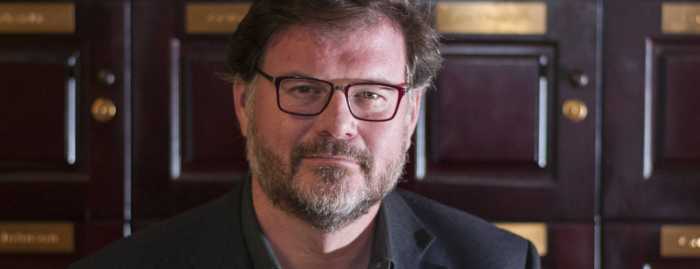
Goldberg argues that such an attitude results in a dangerous lack of appreciation for the rights and freedoms of Western-style democratic life. The situation in Night Vale echoes his observations almost perfectly.
Why the Police State?

Night Vale operates as a dystopian police state in many respects, and fairly unabashedly so. Not only does Night Vale’s government impose arbitrary laws on everyone, but they aren’t above making laws that are impossible to follow or changing them on a whim. Residents of Night Vale are told what to eat, what to read, and even what to think about and how to vote. They are not permitted to own writing utensils or computers without special authorization, and every so often Cecil will interrupt his radio broadcasts to announce that he has been referred for reeducation. Black helicopters survey all citizens almost continuously. If It Devours! is anything to go by, even the possibility of obtaining life after death is contingent upon owning a government-approved haunting permit. Far from feeling frustrated by this blatant governmental intrusion into their lives, the residents of Night Vale accept it wholeheartedly, even proudly. For instance, in the first part of The Sandstorm, Cecil counters Steve Carlsburg’s argument that the government created a sandstorm thusly:
You’re not saying anything new, Steve. Of course the sandstorm was created by the government! The City Council announced that this morning! The government makes no secret that they can control the weather, and earthquakes, and monitor thoughts and activities. That’s the stuff a big government is supposed to do! Obviously, you have never read the Constitution!
Okay, sure, government can be very inefficient, and sometimes bloated and corrupt, but the answer is not to complain about everything that they do. Without government, we would never have schools or roads or municipal utilities or helpful pandemics or black vans that roam our neighborhoods at night keeping us safe. 22
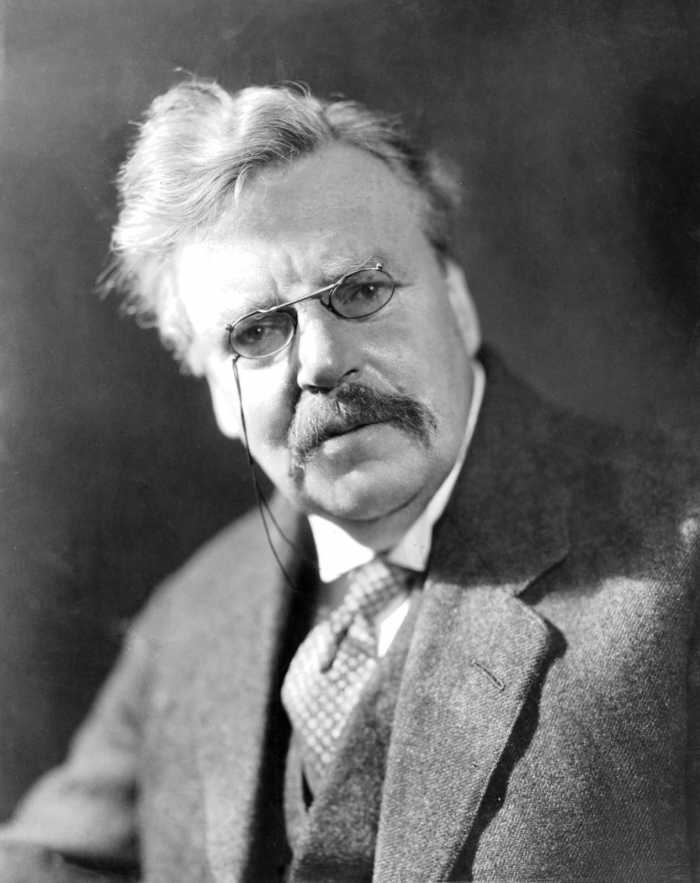
Interestingly, many conservatives argue that this type of government overreach is a natural consequence of abandoning traditional values. These thinkers postulate that if traditional social mores no longer restrain people’s negative impulses, the government inevitably steps in to restrain them by other means. The Hebrew Bible, which serves as the lodestar for conservative thought and beliefs in the West, states in the Ethics of our Fathers that “Whoever takes upon himself the yoke of the Torah [law] will be relieved of the yoke of the government and the yoke of secular life. But whoever casts off the yoke of the Torah will have the yoke of the government and the yoke of secular life placed upon him (Pirkei Avot 3:6).” The Victorian Catholic writer GK Chesterton hinted at this idea when he said: “When you break the big laws, you do not get freedom; you do not even get anarchy. You get the small laws 23.”
The paradox of living in Night Vale, it seems, is that citizens can choose their own pronouns but not their own thoughts or outlook on life, or even (if a bill mentioned in the episode The Candidate is anything to go by) how to breathe. While it might seem strange that a stifling police state like Night Vale would have such high crime rates, a conservative pundit named John Hayward suggests that this seeming contradiction is itself a logical (if extreme) conclusion of progressive thought:
“Authoritarian but soft on crime” is the DEFINITION of anarcho-tyranny, the guiding principle of current [progressive] politics. The most vocal members of the Abolish the Police chorus are far-left radicals who have HUGE plans for using compulsive force against American citizens.
[…]
Street crime can be useful to the authoritarian super-State, because it keeps the people nervous, fearful of each other, and dependent on the government for protection. [Progressives] use soaring crime rates to demand more social spending, not more beat cops and prisons. 24
Oddly enough, some real-life political leaders–particularly progressives–seem to have used the coronavirus epidemic as a licence to experiment with police-state governance themselves. In New York, the ultra-progressive governor Andrew Cuomo placed so many seemingly-arbitrary restrictions on eating and drinking establishments that the right-leaning New York Post called him “Emperor Andrew Cuomo 25.” Since then, some conservative news reporters have circulated rumors that he deliberately shut down bars that criticized his policies 26.
Misery for Everyone

One of the biggest points of divergence between conservatives and progressives lies in notions of equality. Conservatives warn that nobody can truly be equal, and therefore the best option is to give everyone equal opportunities and let them do with them what they will. CS Lewis, in his famous essay Screwtape Proposes a Toast, warns of “a stealthy transition in [people’s] minds from [the ideal that all men should be equally treated] to a factual belief that all men are equal 27.” By contrast, progressives tend to be more enthusiastic about equality of outcomes. Progressives, the Orthodox Jewish writer Moishe Koppel claims, believe “that apparent differences in average ability or achievement among different populations are either illusory or the result of discrimination, exploitation and oppression; culture is never an explanatory factor 28.” Some conservatives take Koppel’s observation even further and insist that progressives wish to rectify inequality by making everyone equally miserable.
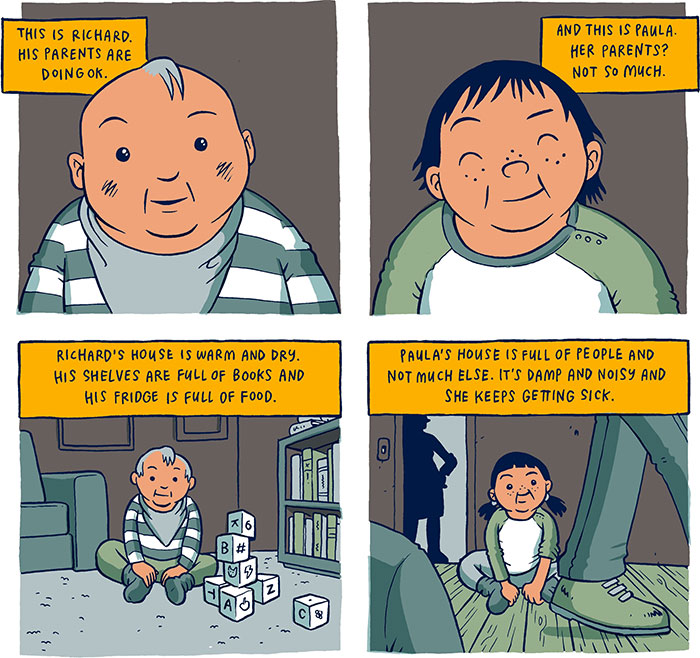
In real life, such an attitude manifests most obviously in the “privilege” narrative invoked by progressive activists. Many of the things progressive activists list as “privileges” seem to entail little more than being treated with respect as a full human being 29. Although progressives often claim that the word “privilege” is simply a way of illuminating and cataloging advantages held by certain groups and not others, conservatives take their usage of the word much more literally.
That’s the key word right there: PRIVILEGE. [Progressives’] obsession with that word is very illuminating. They think everything is a “privilege,” nothing is an inalienable right. Privileges can be revoked. The term conveys a sense of unfairness that needs redressing. 30
This debate may seem theoretical and nit-picky, but it has real-world consequences. One open-minded father in New York City, which has a notoriously substandard public school system, elected to send his children to public school even though he could afford to educate them privately. Years later he learned that the children’s teachers trained them to feel guilty for being white 31. Some programs are even more explicit; for instance, a diversity training session for government workers in Seattle asked white participants to let go of such things as “comfort” and “physical safety 32.” The implication is that as long as people of color often lack such things, white people don’t deserve them either.
The episode that best touches upon the democratic nature of misery in Night Vale, if only for its sheer randomness, is probably Wheat and Wheat By-Products. In this episode, the wheat and wheat byproducts in town start turning into poisonous snakes. From that day on, wheat and wheat byproducts are banned from Night Vale. This decision is likely a reference to those who cannot eat wheat or its byproducts because they suffer from celiac disease and other forms of gluten intolerance. However, Night Vale’s solution for those with gluten intolerances is not to introduce a wider range of gluten-free food, but to ban everyone from eating gluten.
Worse, the eating establishments of Night Vale generally lack good replacements for their wheat and wheat byproducts. Food in Night Vale may be gluten-free, but most of it is unappetizing at best and scarcely edible at worst. Forcing everyone to eat disgusting food in solidarity with those who have restricted diets–rather than simply providing the latter with more and tastier food options–perfectly captures the essence of equal-opportunity misery.
Scientism, But No Science

Scientism refers to the belief in scientific research and technology as a moral authority that can guide policy and behavior 33. This fallacy has virtually nothing to do with real science or the scientific method, whose purpose is simply to wrestle with uncertainty and generate knowledge in whatever form it takes, but the two are often confused in the popular imagination. Conservatives sometimes argue that scientism lies behind progressive policy blunders and the unintended consequences they produce. One of them, Joy Pullmann, says, “Science has been bastardized and taken out of its rightful place to run all sorts of scams on people 34.”
One real-world illustration of the difference between science and scientism can be seen in how different US states responded to the coronavirus epidemic. New York’s governor has often claimed to base his decisions for mitigating the epidemic on science, but not everyone is convinced, not least because his state saw one of the highest death rates in the country 35. Ironically, it’s the the decidedly conservative governors of Florida 36 and South Dakota 37 who seem most interested in the scientific facts on the ground!

In Welcome to Night Vale, Cecil speaks loudly and often about how much he loves science and scientists. In fact, he falls in love with Carlos, at least in part, because the latter is a scientist. Yet, he, and the rest of Night Vale’s residents, show remarkable ignorance of even basic scientific facts, let alone the scientific method. For instance, Night Vale’s engineers are so bad at their jobs that they attempt to build a drawbridge out of furniture upholstery, corrugated cardboard, non-dairy milk, and ceramic bowls. In the episode PTA Meeting, Cecil describes the local quarterback as having recently been in “the advanced stages of cerebral palsy,” which Cecil assumes is a terminal illness 38. In reality, cerebral palsy neither directly kills nor gets worse over time 39. Cecil also thinks rabbits are rodents, even though they’re actually lagomorphs 40.
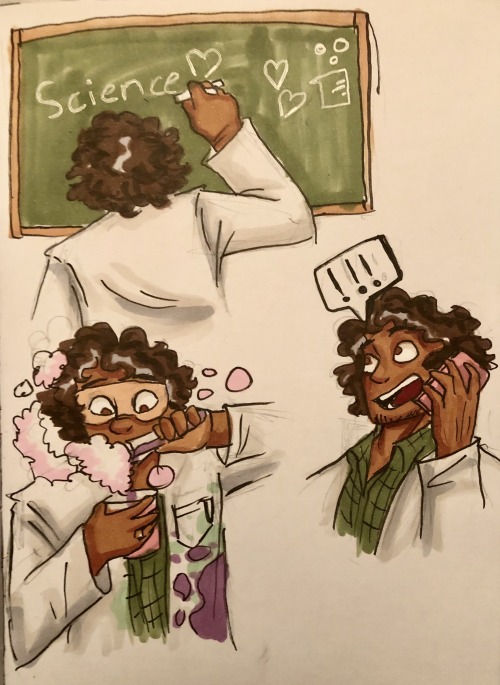
Even the designated scientists of Night Vale do very little, if any, actual science. At the beginning of It Devours! Nilanjana considers tampering with the bacteria she has grown in order to make them look more exciting, something which–as a scientist–she should know better than to do. Her colleague Luisa receives grant funding to yell at potatoes all day long. Her other colleague Mark works in the very same lab as them to build a flashing machine, a project that serves no clear purpose and would look completely out of place in a biology lab. In order to distinguish themselves as scientists, the three of them are forced to wear lab coats all day, every day. In this respect as well, Night Vale demonstrates more commitment to stereotypes about what scientists are like than the work of science itself.
However, the way that scientists are treated in Night Vale goes beyond mere scientism and ignorance. The reality is, Night Vale’s culture can’t help but devalue science and make it irrelevant, even as it extols overgrown children who cosplay in lab coats and build twinkly machines for fun. For one thing, the constant stream of supernatural villains and threats could easily ruin any scientific project, since scientific studies have little value unless they can be replicated. On a deeper level, however, there is very little that science could do for Night Vale’s decaying society. In a world with a shrinking next generation, no sense of history and nothing meaningful to hope for, where the government bureaucracy has absolute control over everyone at every minute (including, presumably, acceptable research projects), there isn’t much incentive to fund or undertake real scientific research that could actually improve people’s lives.
How Progressives View Conservatives

For fairly obvious reasons, progressives tend not to get along with conservatives. Stories, articles, and opinion pieces written by progressives often depict conservatives as well-meaning but ignorant at best, and evil at worst. Popular refrains include the claims that conservatives only care about money and corporations, that they want to force their religion on everyone else, or even that they want to deny the members of particular groups a right to exist. The problem is that progressive depictions of conservatives rarely come close to how conservatives actually see the world. The British politician Daniel Hannan, a disciple of the late Margaret Thatcher, views these misguided portrayals as an inevitable consequence of a media culture in which progressives greatly outnumber conservatives.

Watch a consumer affairs programme and the premise will almost certainly be that wicked corporations are defrauding innocent customers. Tune into a soap opera, and you’ll have endless plotlines about people overcoming homophobia or anti-immigrant prejudice; but it’s hard to imagine an episode of Eastenders about a market trader being over-regulated, or an Archers story that touched on the iniquities of the [Common Agricultural Policy(?)]. Go to Glastonbury and guess what sort of slogans will be chanted on stage. Listen to comedy and… oh, you get the picture.
A [conservative], in other words, will necessarily have a rough sense of what makes the other side tick. A [progressive], by contrast, will have to make more of an effort to seek out opposed opinions. 41
In Welcome to Night Vale, the role of conservative strawman is played by Kevin, Cecil’s gleefully homicidal counterpart in Desert Bluffs. Kevin first appears in The Sandstorm Part B, where he extols the virtues of the shady company StrexCorp, and dismisses concerns that the government created the sandstorm by claiming only a private corporation could do such a thing. Later, when Kevin and colleagues briefly take over Night Vale, they force everyone to become an employee of StrexCorp and cater to the company’s every whim on pain of death. Kevin also promotes a religion called the Church of the Smiling God, which in It Devours! turns out, unsurprisingly, to be a dangerous, world-destroying cult.
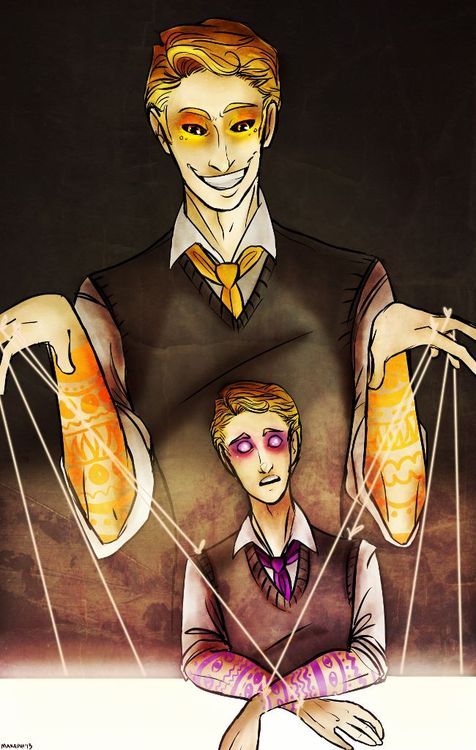
Moreover, in Old Oak Doors Part B, Kevin commits the cardinal sin of offering to “fix” Janice by granting her the ability to walk, alleging that such a development would improve her productivity. Steve Carlsburg promptly flies into a rage and picks a fight with Kevin, arguing that Janice is perfect just the way she is. Tellingly, Janice herself is nowhere to be found in this scene. Instead, two men, who do not share her disability, argue about what’s best for her without her knowledge. Instead of being empowered, Janice is reduced to a prop to illustrate how evil Kevin is and how open-minded Steve is. Furthermore, too broad an application of the notion that disabled people are fine without treatment can hurt the disabled, if it leads to them being denied services that could seriously improve their quality of life 42.
In the grand scheme of things, then, Night Vale and Desert Bluffs–and their respective radio hosts–are just two sides of the same coin. The citizens of Night Vale are slaves to their government, whereas the citizens of Desert Bluffs are slaves to a corporation, but both seem chronically incapable of true freedom and flourishing. Furthermore, both Cecil’s callousness and Kevin’s overweening enthusiasm betray the exact same lack of concern for their compatriots’ well-being. Some of the changes that Kevin makes when he assumes control over Night Vale–including killing Cecil’s office workers and instituting a company picnic that nobody is allowed to leave–are horrifying, but not markedly worse than what normally happens in Night Vale on any given day.
The most distinctive attribute of Kevin and his minions is their tendency to describe terrible things as if they were good or even great. In depicting Kevin this way, the creators of Welcome to Night Vale subvert the phenomenon that conservatives tend to be happier than they are 43–something even many progressives have noticed. In real life, however, most of the celebrities who call terrible things good are progressive, with conservatives more often calling good things terrible. For instance, some of the loudest voices praising coronavirus lockdowns, and minimizing their negative impacts, are leaders in the progressive Jewish community 44. One of these same leaders also turned a woman who performed abortions on concentration-camp victims–and murdered their babies–into a hero 45! In summary, if Kevin is meant to be the quasi-conservative foil to an ultra-progressive Cecil, he doesn’t do a very good job of it.
A Very Bleak Future
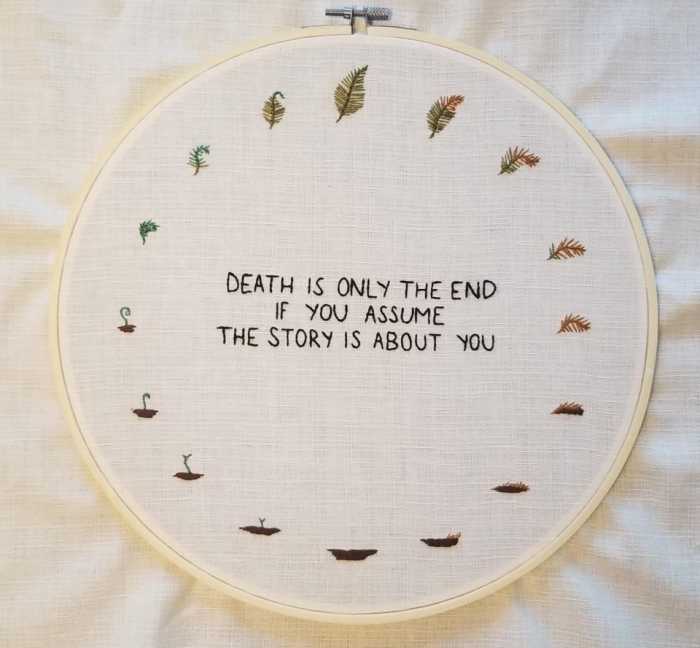
Although Night Vale may be an interesting place to visit in the short term, its long-term future is bleak. For all its excitement, the town is ultimately a decadent, crumbling wasteland. The lack of a robust family culture means that its population will age and shrink with each passing generation. With a few famous exceptions, the citizens of Night Vale seem lazy, thoughtless, and trivial. The scientists get no real science done, and the various gods that call Night Vale home are as uncaring as anyone else who lives there. It doesn’t help that Cecil dedicates an inordinate amount of time on his radio show to talking about the emptiness and meaninglessness of existence, and how anything his listeners may do is just something to occupy themselves with until they die.
This extreme, all-consuming hopelessness goes a long way toward explaining some of the more bizarre behaviors exhibited by Night Vale’s residents. Most notably, many of them seem to lack any sort of survival instincts, either ignoring the extreme dangers they are faced with or going toward them. Perhaps the citizens of Night Vale see no reason to stay alive when their existence is so empty. In It Devours! Pastor Munn, the leader of the Church of the Smiling God, goes so far as to say that, given the utter meaninglessness of life, it would be preferable to be eaten by a giant centipede. The fact that her cult has followers–who either don’t notice the obvious danger associated with it or don’t care–suggests that she’s not alone. The loneliness and nihilism on display in nearly every one of Night Vale’s stories may be a common affectation among Americans under the age of forty, but it’s not conducive to building a full and productive life.
It is true that when Lovecraft introduced the world to cosmic horror, he presented the universe as empty and hopeless. However, Lovecraft, who lived in the primitive early decades of the twentieth century, didn’t know better. If modern progressives, who have access to health, wealth, knowledge and prosperity the likes of which Lovecraft could only dream of, can’t come up with anything better than he did, it pays to wonder if the conservatives were right all along.
In the opening sequence of the right-wing Andrew Klavan Show, the host skips merrily through a black-and-white urban wasteland. As he approaches the people and scenery around him, they revert to bright, colorful and cheerful versions of what they would have been in a more conservative era. As soon as he moves away from them, though, they go back to their desolate modern selves 46. The message is pretty clear: a world governed by progressivism would not be a nice place to live at all. And so it is in Night Vale. The irony is that the creators of Welcome to Night Vale had the opportunity to showcase the benefits and possibilities of living in a progressive world in which everyone is free from old-fashioned restrictions. Instead, their perfectly progressive society is every bit as unworkable and unappealing as conservatives assume such a society would be.
Works Cited
- “Conservatism.” Merriam-Webster.com Dictionary, 1 Aug 2020, Merriam-Webster, https://www.merriam-webster.com/dictionary/conservatism ↩
- “Progressive.” Merriam-Webster.com Dictionary, 2020, Merriam-Webster, https://www.merriam-webster.com/dictionary/progressives ↩
- Eberstadt, Mary. “A New Theory: The Great Scattering.” Primal Screams. West Conshohocken, Pa, Templeton Press, 2019 ↩
- Eberstadt, Mary. “The Fury of the Fatherless.” First Things, Dec 2020, https://www.firstthings.com/article/2020/12/the-fury-of-the-fatherless ↩
- Martin, Susan. “The Deadly Dance of Perfectionism: How the Rhetoric of Family Planning Hurts Children.” The Public Discourse, 21 November 2019, https://www.thepublicdiscourse.com/2019/11/57890/ ↩
- Fink, Joseph & Jeffrey Cranor. It Devours! New York, NY, HarperCollins Publishers, 2017, pp. 345 ↩
- Thompson, Derek. “The Future of the City Is Childless.” The Atlantic, 18 July 2019 https://www.theatlantic.com/ideas/archive/2019/07/where-have-all-the-children-gone/594133/ ↩
- “QuickFacts: Elkins city, West Virginia.” United States Census Bureau, 2019 https://www.census.gov/quickfacts/elkinscitywestvirginia ↩
- “Area Schools and Colleges.” City of Elkins, 2020 https://www.cityofelkinswv.com/living/area-schools-colleges/ ↩
- Glenn, Amy Wright. “Child abuse is 40 times more likely when single parents find new partners.” Philly Voice, 25 March 2019 https://www.phillyvoice.com/child-abuse-single-parenting-divorce-marriage-new-partners-advice/ ↩
- Venker, Suzanne. “Raising Kids in a Rush.” The Two-Income Trap: Why Parents Are Choosing to Stay Home. Post Hill Press, 2015 ↩
- Bonnello, Chris. “The Stop Rule: teaching children consent through play.” Autistic Not Weird, 26 April 2019 https://autisticnotweird.com/the-stop-rule/ ↩
- Hymowitz, Kay S. “The Teening of Childhood.” Ready Or Not: Why Treating Children as Small Adults Endangers Their Future–And Ours. New York, NY, The Free Press, 1999 ↩
- cecilspeaks. “Meg Bashwiner: And now, listeners of every kind, the voi–…” Cecil Speaks – Night Vale Transcripts, 16 June 2014, 8:07 PM, https://cecilspeaks.tumblr.com/post/89021204421/episode-49-old-oak-doors-part-a ↩
- Fink, Joseph & Jeffrey Cranor. It Devours! New York, NY, HarperCollins Publishers, 2017, pp. 172 ↩
- Bray, Chris. “Ben Sasse Almost Pierces Our Helicopter Parents Problem: Child Neglect.” The Federalist, 13 July 2017, https://thefederalist.com/2017/07/13/ben-sasse-almost-pierces-helicopter-parents-problem-child-neglect/ ↩
- cecilspeaks. “The arctic is lit by the midnight sun…” Cecil Speaks – Night Vale Transcripts, 29 July 2013, 10:24 PM, https://cecilspeaks.tumblr.com/post/56852925173/episode-3-station-management ↩
- “Intern Death Toll.” Welcome to Night Vale Wiki, Fandom.com, https://nightvale.fandom.com/wiki/Intern_Death_Toll ↩
- Fink, Joseph & Jeffrey Cranor. It Devours! New York, NY, HarperCollins Publishers, 2017, pp. 30 ↩
- cecilspeaks. “It is almost complete. It is almost complete at last…” Cecil Speaks – Night Vale Transcripts, 3 August 2013, 1:59 AM https://cecilspeaks.tumblr.com/post/57234251522/episode-7-history-week ↩
- Goldberg, Jonah. “Introduction.” Suicide of the West. New York, NY, Crown Forum, 2018 ↩
- Night Vale Presents. “19A-The Sandstorm.” Welcome to Night Vale, Welcome to Night Vale Starter’s Guide. http://www.welcometonightvale.com/listen ↩
- “Quotations of GK Chesterton.” The Society of Gilbert Keith Chesterton, 2020 https://www.chesterton.org/quotations-of-g-k-chesterton/#Government%20and%20Politics ↩
- @Doc_0 (John Hayward), et al. “The Harris pick is the sound of screeching tires….” Twitter, 12 August 2020, 8:08 am, https://twitter.com/Doc_0/status/1293519753777209345 ↩
- Post Editorial Board. “‘Emperor’ Andrew Cuomo’s insane ‘eat if you’re drinking at a bar’ order.” New York Post, 17 July 2020, https://nypost.com/2020/07/17/emperor-andrew-cuomos-insane-eat-if-youre-drinking-at-a-bar-order/ ↩
- Margolis, Matt. “Evidence Is Mounting That Governor Cuomo Is Targeting Bars That Criticize Him For Suspension.” PJ Media, 9 August 2020, https://tinyurl.com/ybp7wb4u ↩
- Lewis, CS. “Screwtape Proposes a Toast.” Saturday Evening Post, 1959 http://www.saturdayeveningpost.com/wp-content/uploads/satevepost/screwtape-proposes-a-toast-SEP.pdf ↩
- Koppel, Moishe. “Heidi’s Beliefs.” Judaism Without Apologies, 26 February 2018 https://moshekoppel.wordpress.com/2018/02/26/heidis-beliefs/ ↩
- McIntosh, Peggy. “Unpacking the Invisible Knapsack.” Peace and Freedom Magazine, 1989 https://www.racialequitytools.org/resourcefiles/mcintosh.pdf ↩
- @Doc_0 (John Hayward), et al. “Look at Chicago and understand this is every city, every town, under Democrat rule….” Twitter, 10 August 2020, 8:44 am, https://twitter.com/Doc_0/status/1292804013344337921 ↩
- Packer, George. “When the Culture War Comes for the Kids.” The Atlantic, October 2019 https://www.theatlantic.com/magazine/archive/2019/10/when-the-culture-war-comes-for-the-kids/596668/ ↩
- Rufo, Christopher F. “Cult Programming in Seattle.” City Journal, 8 July 2020 https://www.city-journal.org/seattle-interrupting-whiteness-training ↩
- Thornton, Bruce. “The Dangerous Rise Of Scientism.” Hoover Institution, 6 June 2016, https://www.hoover.org/research/dangerous-rise-scientism ↩
- Pullmann, Joy. “Why We Can’t Trust Anything ‘The Science’ Says Anymore.” The Federalist, 10 July 2020 https://thefederalist.com/2020/07/10/why-we-cant-trust-anything-the-science-says-any-more/ ↩
- @NYGovCuomo (Andrew Cuomo) et al. “You don’t defeat a virus with politics…” Twitter, 14 July 2020, 8:55 AM, https://twitter.com/NYGovCuomo/status/1283022197230108678 ↩
- @GovRonDeSantis (Ron DeSantis) et al. “WATCH LIVE: Press Conference Regarding Schools.” Twitter, 30 Nov 2020, 12:10 PM, https://twitter.com/GovRonDeSantis/status/1333458334519844865 ↩
- @govkristinoem (Governor Kristi Noem) et al. “Unfortunately, the spread of #COVID19 is rising in every state, regardless of if they have mask mandates in place…” Twitter, 18 Nov 2020, 7:45 PM https://twitter.com/govkristinoem/status/1329216568778080256 ↩
- cecilspeaks. “The sun has grown so very, very old. How long cold, fading death? How long?” Cecil Speaks – Night Vale Transcripts, 30 July 2013, 9:09 AM https://cecilspeaks.tumblr.com/post/56883844013/episode-4-pta-meeting ↩
- Center for Disease Control and Prevention. “What is Cerebral Palsy?” Center for Disease Control and Prevention, 30 April 2019, https://www.cdc.gov/ncbddd/cp/facts.html ↩
- Chan, Samantha. “Dispelling the Myth: Are Rabbits Rodents?” Wide Open Pets, April 2020 https://www.wideopenpets.com/dispelling-the-myth-are-rabbits-rodents/ ↩
- Hannan, Daniel. “The left-wing dominance of popular culture is unintentionally good for conservatives.” ConservativeHome, 2 February 2017 https://www.conservativehome.com/thecolumnists/2017/02/daniel-hannan-the-left-wing-dominance-of-public-culture-is-unintentionally-good-for-conservatives.html ↩
- @ConceptualJames (James Lindsay), et al. “More than 50k likes on a stupid, ignorant hot-take that will do massive damage to autistic people…” Twitter, 15 July 2020, 1:54 PM, https://twitter.com/ConceptualJames/status/1283460020122923009 ↩
- Taylor, Paul. “Republicans: Still Happy Campers.” Pew Research Center, 2008 https://www.pewresearch.org/wp-content/uploads/sites/3/2010/10/Republicans-Happiness.pdf ↩
- Bergman, S. Bear. “How to Make Socially Distanced Holidays Actually Feel Special.” Vice, 20 Oct 2020, https://www.vice.com/en/article/5dpm9d/make-socially-distanced-holidays-fun-and-special ↩
- Pildis, Carly. “Leave The Holocaust Out Of Your Abortion Debate.” Tablet Magazine, 29 May 2019, https://www.tabletmag.com/sections/news/articles/leave-holocaust-out-of-abortion-debate ↩
- “The Andrew Klavan Show-Intro Song.” YouTube, uploaded by TheLeadhound, 29 September 2016, https://www.youtube.com/watch?v=XTqO-euy7kA ↩
What do you think? Leave a comment.




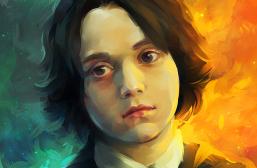





Night Vale is not a place I’d want to visit. Or a podcast I’d listen to. But the pizza delivery/secret police sounds hilarious.
On another note, I agree that just focusing on the negative aspects of history isn’t right. Yes, there have been horrid mistakes and we should acknowledge them, but we should also remember the good things our countrymen have done, that make us proud to belong to whatever country we grew up in. Otherwise, what’s the point of learning history?
I had not heard of this podcast before reading your article, and I’m genuinely fascinated by the whole concept of it. I haven’t really gotten into the whole podcast craze, so I don’t think I would ever sit and listen to it.
But, just out of curiosity, do you happen to know how listeners have responded to it? From your analysis I’m assuming it might be rather divisive. So I’m just curious as to whether it has been notably criticised or opposed by any particular listeners?
Great writing as always, by the way!
You’re not missing much, honestly. The thing about Welcome to Night Vale is that once you get past the weirdness of it it’s just kind of tedious and obnoxious, especially to binge. The biggest fans seem to be those who got into a rhythm early and tune in as if it were the evening news.
Above and beyond that, though, the podcast is actually not as divisive as I’m making it seem. As far as I know most people who listen regularly are themselves progressives looking for affirmation of their progressive views, so they just take the progressive fan service (the gay radio host, the all-gender restrooms, the worship of WEB DuBois, etc.) at face value and treat it as inherently positive. The point of this article is to get people to look past those things and think about what it would be like to actually live in Night Vale.
I find that it’s kind of like Terry Pratchett books – it works best in small doses. If you listen to too much at a time, then the impact of the writing style gets lost.
I’ve been following WTNV for a while. Around episode 40, I want to say, is where the novelty and creativity wore off. Yes, it’s brilliant, but these days it doesn’t have the thought-provoking, purely bizarre effect that it did during its earlier episodes. It feels more forced, a failing effort to recreate the ‘weird factor’ of the first few episodes, rather than creating anything original.
I feel Night Vale is at it’s weakest during the longer narrative arcs. The snapshots of small town weirdness like the community calender or standalone episodes always seem to capture the essence of the world better than when a larger narrative forces the writers to explain things.
Their live shows are pretty good fun!
I’m not a fan of the fan-service tumblr crowd pandering in the live shows. I’d rather just have more Night Vale than loads of winking cameos and celebrity mates dropping by.
Love this podcast – genuinely brilliant and unlike anything else. Fantastic for long car rides, especially at night through deserted roads and strange little towns…
If a first grader took acid, this podcast is how dull that would be.
This podcast is brilliant although I very rarely like The Weather and the introductions from the creators are starting to grate.
Ironically, an article on The Artifice was what got me into listening to Night Vale, and now one is inspiring me to put it on the shelf.
That’s pretty ironic isn’t it ?
This sounds like something I’d like, but unfortunately I have a bizarre aversion to talk radio that even I am unable to explain. I don’t know why, but listening to people talk over the radio makes me incredibly tense. It’s like nails on a chalkboard, it just puts me on edge. Even the soothing tones of NPR make me want to run screaming out of the room (which is hard to do when you’re riding shotgun in the family SUV). I’ve never been able to get into podcasts (or audio books) because I’m pretty sure they’d elicit the same reaction.
I do have Asperger’s Syndrome, so maybe that has something to do with it, but I’ve never heard of anyone else with Asperger’s having this kind of reaction to talk radio.
It’s too overstuffed.
WTNV has been extra and overstuffed from day 1. Like, I don’t see how black magic, secret police, mystery helicopters, lights in the sky, a Forbidden Dog Park and unknowable angels (just to name a few) doesn’t establish that they’re aiming for “comically overstuffed”.
I love Night Vale, but I can’t do podcasts. No matter how interesting it is or how involved I am with the story, podcasts of any kind make me fall asleep.
Night Vale is brilliant, funny, and twisted and more people should give it a try. I do feel that some caveat should be given about the fandom, though. While there are a lot of wonderful and creative people out there, Night Vale fandom also has an overabundance of headcanon vigilantes who will attack you for picturing the characters “wrong.”
So yes, love Night Vale for all its wonderful creativity, tongue-in-cheek dark humor, and the glorious blooming romance between Cecil and Carlos, but tread carefully in the fandom, for it’s even more threatening than Street Cleaning Day.
Yes, I’m aware of the fandom arguments for Night Vale, but there are asinine arguments about every fandom.
I have to admit, the Night Vale fan art is brilliant and intriguing.
There is a lot of great fan art, and searching for examples was probably one of the most fun parts of writing this. The creators of Welcome to Night Vale are famously reluctant to share what any of the characters actually look like, and so fans have created all sorts of versions of them.
This is a really interesting article. I love all of the art people have made to flesh out the world and characters.
I enjoy Nightvale (only listen to like 20 eps), but I find Cecil insufferable as our radio host. I assume that he’s trying to affect some odd, out-there syncopation and air, but instead it just sounds like a guy clearly reading off of a sheet of paper, which would be fine if that was the news bits that “Cecil” is reading to us, but even his allegedly spontaneous asides sound awkwardly read.
I discovered this the other day – currently completely addicted.
I’m a fan of WTNV regardless of the valid points brought up in this article. I’m an avid crafter and an avid fiction reader, and podcasts and audiobooks allow me to do both things at the same time! Knitting gets boring without something to listen to, and just sitting still listening to something makes me really restless in a way that reading doesn’t. I usually suck big time at multitasking, but these two activities don’t seem to use the same part of the brain, and thus they complement each other perfectly, distracting the very part of the brain that is not being used by the other activity and otherwise would start clamouring for attention. Win/win.
It’s kinda interesting that Cecil is the unknown entity of nightvale. He describes the world around him, but we don’t know what HE looks like. From a story telling point, what the narrator looks like doesn’t really matter, but things like that are still included in books, and it’s kinda unavoidable in movies since the actor becomes the face of the character. It’s cool that wtnv was able to keep Cecil so nebulous even as he’s pouring his own view of the world around him into the mic; we know he likes Carlos’s hair, but don’t know what his hair looks like, or if he has any at all.
I love the fact that without having a precise description of the characters I instinctively imagine them in my own way. It’s like when I read a book and the character enters the house, even before describing the room I have my own idea of how the place looks like, and I manage to imagine a different house each time. Same here, every time there is a new character in WTNV I immediately create a new and original character.
I’m a Cecil cosplayer (and my best friend is my wonderful Carlos lol) and honestly the ambiguity of his appearance makes him one of my favorite cosplays! I can make him look different every time i cosplay him! Sometimes I give him long silver hair, sometimes short white hair, a few times I had him with purple hair, even. And I can change the makeup often. Sometimes I do the typical third eye and tattoos, other times I give him an ethereal galactic look. Just felt this might be relevant input.
I enjoy listening to the WTNV podcast and it helps me calmly fall asleep sometimes, but the musical interlude of every episode is rather annoying (to me) and I stopped listening after episode 12 or 13 because of it. I find it (the music also know as, “the weather” too loud (due to the recording volume?) and pointless. I want to listen to someone read or act when I’m listening to a story. The music interrupts the story and the narrative flow. If I want to listen to music or singing I’ll listen to a music podcast.
Yes, the Weather segments are probably my least favorite part too. I would be okay with the music if it contributed something to the overall story, but the songs seem to have been chosen completely at random. Most of them aren’t even that good.
I liken this show to a cross between the X-Files and Prairie Home Companion. I started listening to it just before I had to take a long trip overseas, downloaded all the episodes, and its delightful mix of American Gothic and Sci-Fi heebie-jeebies sustained me through a series of long-haul flights, extended layovers, and several, jetlagged days at the other end.
I love Night Vale. It’s just the right mix of the absurd and terrifying to work.
I also love the fact that the creators actually think about representation and how their little bit of entertainment should include a variety of people. Changing the voice actor for Carlos because they thought that a queer scientist of colour should be portrayed by a queer actor of colour is utterly fantastic (much like Carlos’s lovely hair).
The problem I see with the obsessive focus on “representation” in a show like this is that it just doesn’t count for much when everyone is so unlikable. I suppose the creators deserve some credit for attempting to include an entire cross-section of society in their podcast, but it’s hard for me to imagine why anyone would want to emulate any of the show’s characters even if they did have the same ethnic background or sexual orientation (for instance). It often seems like the real message of Welcome to Night Vale is that everyone, no matter their background, heritage, or life circumstances, should be free to be as narcissistic and dysfunctional as they want.
Rapidly working my way through the episodes.
I had never experienced Night Vale before. I could see myself getting into it (despite my dislike of purely aural information intake), but I fear there’s too much of it there. I am daunted by the size of the archive. This is something I’ve heard webcomic artists worry about. There ought to be a name for it.
I, too, have a problem with purely aural information intake. But just a couple of weeks ago, I found out that the first seasons of WTNV are available in book form. The first one is called Partly Void, Mostly Stars, and the second one is The Great Glowing Coils of the Universe. I was so happy to finally get to read them.
Like a poor-mans ‘Alice in Wonderland’.
I liked Nightvale, well I guess I still like it, but it gradually became to crowded for me and the tone changed. I think the show gradually lost the creepy edge and the town itself became too much of a protagonist and things got too overstuffed. If everything is possible then nothing really matters anymore, there needs to be some level of normalcy I think for everthing else to stand out. Still there were some very good episodes, I think A Story of You is the one that sticks out the most strongly in my memory.
Great and thorough article. I especially like that you talked about conservative POVs, since not a lot of articles on sites like this do. I am in fact a conservative, so I wish more people talked about the positive and negative parts of this view (not just the negative). That being said, I am open to some progressive views. For example, as a grown woman, my parents are still not my friends, and they still seem to think that their position as parents is reason to act as though everything they say and think is right. But I digress. Again, great article, especially when showing the complications of both views.
So it’s conservative propaganda then.
The use of the word progressive is actually to create an opposite to conservativism, which, as your article shows, is not a coherent idea, simply a bunch of emotional slogans. ‘Progressive’ ideology is therefore in fact an invention of conservatives, it is not a philosophy of it’s own, it is a label for anarchists, communists and people seeking freedom from sexual, racial and religious oppression. No one really declares themselves progressive apart from wierd middle class white celebrities who are too stupid or afraid to read a book and take a real stand. Instead, they stand for what their enemies do not. They do not realise that their enemies invented this label to give ‘conservatives’ a purpose, to imply that their views, and their way of life is NOT the status quo, is the establishment… the dictatorship.
The term ‘progressive’ is simply a trashcan for anything conservatives don’t like, gay rights, trans rights, different ways of expressing family, culture, and economics. They lump all these together and call it ‘progressive’ and imply this is eroding society, when the alienation created by capitalism is the source of all their problems but of course *this* idea is forbidden. To even talk of capitalism and it’s role is forbidden. So because they do not have a clue how to resolve their own alienation, they blame it on others. They create a ‘hateplank’ a fascist idea about using an invisible enemy to move people from a rational, kind and humane position to one where they will happily consider others brain washed, deviant, or insane because they think differently. What disturbs me most about your article is the way you take a conservative portrayl of ‘progressive’ society as fact, and then weaponise this portayl as a vindication of conservative ideas, which are a basket case full of incoherent horse crap.
This special horror of the unknown. That is probably even more terrifying and unsettling than everything you could ever see. You own fantasy is worse than any horror picture BUT if even you fantasy has problems to picture what is so horryfining, it its a special note to the unsettling feeling. A feeling of wrongness, and that is what makes Lovecrafts works great. They feel not only terrifying and unsettling but also very wrong in a way that goes against everything that you know and can make sense of.
My favorite part of WTNV is the simple fact that horrible, irreversible, inexplicable things happen for incomprehensible reasons all the time and everyone acts like it is totally normal. Y’know, much like real life. Everything happens for a reason, but no one in Nightvale ever tries to find out why or even to attribute it to a higher power; everything simply is without looking for an explanation.
My friends and I had an argument over what Cecil looked like for a solid 2 hours.
I’m used to listening to things like Cabin Pressure and Neverwhere. Even the Lord of the Rings audio book as some great inflections and emotions in the read, albeit very long. So maybe I can get into this?
I got introduced to Welcome to Night Vale because I spotted their first novel on the shelf at the book store. It sounded like my sort of thing, picked it up, read it, and then had to listen to the rest of it.
It took me actually quite a while to listen to it all, but in good weather it was perfect for listening to while walking the dog. Frequently had to skip through the weather though just for time’s sake.
For additional creepy I can solidly recommend Alice Isn’t Dead. This one is much shorter, much more like a novel compared to Night Vale which is indeed sort of a creepy Lake Woebegone. Working through The Bright Sessions but haven’t really come to any solid conclusions on how well that one is done yet. The Orbiting Human Circus of the Air is also in the mix. That one is more in the fantastically silly category than creepy though.
I can second the suggestion that Alice Isn’t Dead, another podcast from the same creative team, is well-done, spooky as hell, much more focused.
I’ve never heard of Night Vale before. I suspect I now have some filler for my daily commute.
I’ve heard of Night Vale but never investigated farther, and it sounds like a glorious podcast of all things weird.
Great coverage. I recall listening when it first came out, then forgetting about it, and I now need to re-listen.
I liked Night Vale well enough in the early seasons, but as the show became overstuffed with plots and characters, the whole thing started to feel like some kind of paranoid supernatural soap opera; nothing wrong with that, but it just wasn’t my personal cuppa tea anymore and I eventually gave up on it.
The first episode is surprisingly shaky, so I would say go back to that after listening to the second one.
Newcomers should skip the pilot, or at least commit to listening to a few additional episodes before deciding whether to continue; like most vaguely experimental shows, they take a few tries to get their footing.
I’m only a few episodes into the podcast and I believe what draws me in is that I’m trying so hard to understand this town, so I continue to listen in hopes of better understanding and in such make this unknown more understandable, when really the more I listen the crazier it gets. It is a fascinating situation.
A friend kept nagging me about WTNV until I looked it up and started listening. It does consume your brain. Well, I never much liked my brain anyway. I’m happier now.
Life is still just as terrifying and unknown as it was in Lovecrafts time we just now have a flashlight in the void that doesn’t make it less of a void.
This article managed to completely misinterpret Night Vale in a way I had not thought previously possible. When I first began reading it, I thought that perhaps I would dissect the arguments you presented but they actually got too daft for me to try. I truly hope that you leave this podcast for people that can understand and enjoy it for what it actually is, instead of spending so many hours absolutely ignoring the entire point of it. Night Vale is a comedy podcast. A fact I think you may have actually missed while writing this.
“Science”, in this podcast seems to be treated less as a subject involving mastery and more as a civic, institutionalized religion.
I’ve been listening to it on my commute when I would normally listen to the radio news just makes the whole experience more surreal.
I read the book as an ARC and it is fantastic!
This is a whole lot of writing to say that you don’t understand satire when you listen to it.
This is an incredible stretch and super weird interpretation of Night Vale. It’s very clear the author does not get satire, parody, or absurdism. Night Vale is not literal or metaphorical – it’s a horror-comedy podcast with surreal and dystopian elements. It would be like saying ‘the Addams Family is a terrible example of family life.’ Like – yes. It was not written to be viewed as good or exemplary.
Night Vale is not meant to be a nice place to live, driven by good values. It’s weird, it’s terrible, it’s reported on by an unreliable narrator, and a lot of the world building is driven by funny one-liners. This article takes it as literal (or metaphorical – I genuinely burst out laughing at the part where the author things wheat turning into snakes is a metaphor for celiac disease) and then criticises the authors for not ‘showcasing the benefits of a progressive society’ when they were never, ever trying or wanting to do that. Night Vale is terrible, it’s a horrific, weird place to live filled with bizarre things and people – then occasionally, it has a sweet community and touching moments: the contrast of horror and heart is nice, but not ever supposed to be realistic.
In terms of its progressive values, they’re often in-jokes or friendly punchlines; sure, the authoritarian government can break into your house and re-educate you for owning a writing implement (and that’s fine) but things like racism/segregation? Don’t be ridiculous – our dystopian society would never!! It’s nice listening to a podcast where a gay couples date is interrupted by a weirdo cult opening a wormhole in the park, not a homophobic attack or hiding from their family.
The author has put a lot of effort into trying to figure out how family structure and school districts work in a town where kids are shapeshifters, book-reading militia, disembodied hands and inanimate objects – and things like planes materialise and interrupt a school basketball game. It’s just it’s a pointless effort as it absolutely misses the genre and style that was being created in the podcast. Absurdist fiction isn’t for everyone: next time, just admit you don’t like/understand it and move on…
I think you’re not really getting the satire here. Like the “kids or dogs” line. I sincerely doubt the writer’s actually think or are trying to say that kids and dogs are the same thing. It’s actually a commentary on the media’s moral panic about the birth rate dropping and all of the silly articles pearl-clutching about “women adopting dogs instead of having babies!” It’s supposed to be silly, not an example of how liberals view children.
Also, you seem to not have much experience with small towns. A town of 7,000 people having four elementary schools is actually really weird. Most towns of that size only have one. I grew up near a town of 8,000 and they only had one grade school.
Finally, a lot of the portrayals of progressive and conservative ideas in here are very stereotyped. You’re dismissiveness of LGBTQ+ characters as a type of “liberal fan service” is offensive. Your use of Jewish people to try and make pro-traditional family arguments as well as the comment about them and covid lockdowns is coming across as… problematic for a lot of people.
This is a good attempt at concise literary analysis, and I think you are actually good at writing, but in the future please do more balanced research before making assumptions.
I keep going back and forth of whether this author has a complete lack of ability to understand satire or if this piece itself is satire. This write up is so beyond absurd and out of touch with the story. Complaining people in Nightvale don’t have a good grasp of history….. lol!! Nightvale isn’t real… the warped history is purposeful for the world of Nightvale, not them not knowing real world history. If this whole article is satire then it did a fantastic job, otherwise, wow, it’s embarrassingly naive and vapid. Do love that there’s citations included. There’s a couple decent points made here, particularly the fact that Janice isn’t given a voice, but overwhelmingly this interpretation lacks understanding of what is actually happening in this podcast or book series.
I’ve never seen an article spend so much time not getting its subject matter before.
Weirdest Night Vale analysis I’ve ever read. It’s like the satire went over their head.
“Satire: trenchant wit, irony, or sarcasm used to expose and discredit vice or folly” (definition from Merriam Webster). Just thought I’d bring that up. WTNV is satire, which this article completely failed to mention.
Also, to briefly quote Oscar Wilde, “Those who find ugly meanings in beautiful things are corrupt without being charming. This is a fault…There is no such thing as a moral or immoral book. Books are well written or badly written. That is all.”
In addition, the article never really touched on the progressive side of the argument as much as the conservative side, showing bias. Therefore, I would not say that this is a reputable source of information. Even if a writer or critic does not agree with everything the opposite side of an argument may state, they’re obligated to at least provide an insightful look into the opposition. One of the few instances where cherry-picking from the opposite argument would be acceptable would be persuasive writing, but this didn’t strike me as that. This is, of course, my subjective opinion, but a counterargument seems important in any piece of speech or writing discussing the conflicting conservative and progressive ideologies.
I used to listen to this podcast all the time as a kid with my dad. Never thought about looking at it this way. Super interesting
I feel compelled to address a point that has come up in the comments several times now. I see a lot of people saying things to the effect that my criticism of Welcome to Night Vale is unfounded because it’s “satire.” I just don’t buy that, though, for the simple reason that satire (even absurdist satire) still requires some internal logic in order to work. The problem with Night Vale is that, more often than not, it seems like the creators of the show just throw whatever random absurd or outlandish thing they can think of at the audience and hope that they find it funny (or scary). This is not good practice for storytelling, period. It’s not funny, scary, or even especially interesting. I know good satire when I see it–I read Kafka and watch The Office, among other things–and Welcome to Night Vale isn’t it.
Moreover, if Welcome to Night Vale is satire, that naturally raises the question of what it is satirizing in the first place, because the entire point of satire is to make fun of human flaws and weaknesses. In my view, to the extent the series is a satire of anything at all, it’s a satire of progressives.
Never got into WTNV so I can’t speak to the content of that but this article seems especially motivated as an author’s tract about why conservativism is better than the alternative which is certainly a position.
You say a lot without really unfolding the whole format of the show here. Welcome to Night Vale, a parody news radio show, does what the local news always does: attempts to report lived experiences of their town’s citizens in a way that informs listeners who are unfamiliar with the facts. The satire is driven by the types of things that might be reported on such a show (high school sport scandals) but also absurd facts that complicate the issue (a quarterback has been removed from the team because he does not exist). The absurdity is reported on as a normal fact of living in Night Vale, but the show is equally interested in satirizing the format and social issues.
Because your analysis fails to examine the format of the show, you fail to understand how local the show is meant to be. Night Vale isn’t a popular tourist destination or a nice place to live, and the show isn’t about progressive or conservative values. This is a show about journalism and it’s inconsistency; in the episodes about the Sandstorm, they still have sections of The Weather. The creators clearly aren’t building cohesion or investment in the ways you value, but your failure to understand what they ARE building (absurdity and calm reporting of chaos) does not make them the weak link in your paper.
Final Grade: 70/100
Also your conclusion’s analysis of Lovecraft’s work and life is weak to the point of falsehood. He himself acknowledged how vitriolic his views on race were late in his life, and many thousands of people were progressive before our current era (see: Robert Louis Stevenson’s views on animal cruelty and vivisection). Your views on Lovecraft seem to be based on what you’ve heard rather than what you’ve researched. Weak ideas such as these will only ever damage your paper’s credibility in academic spaces.
Grade docked to 60/100